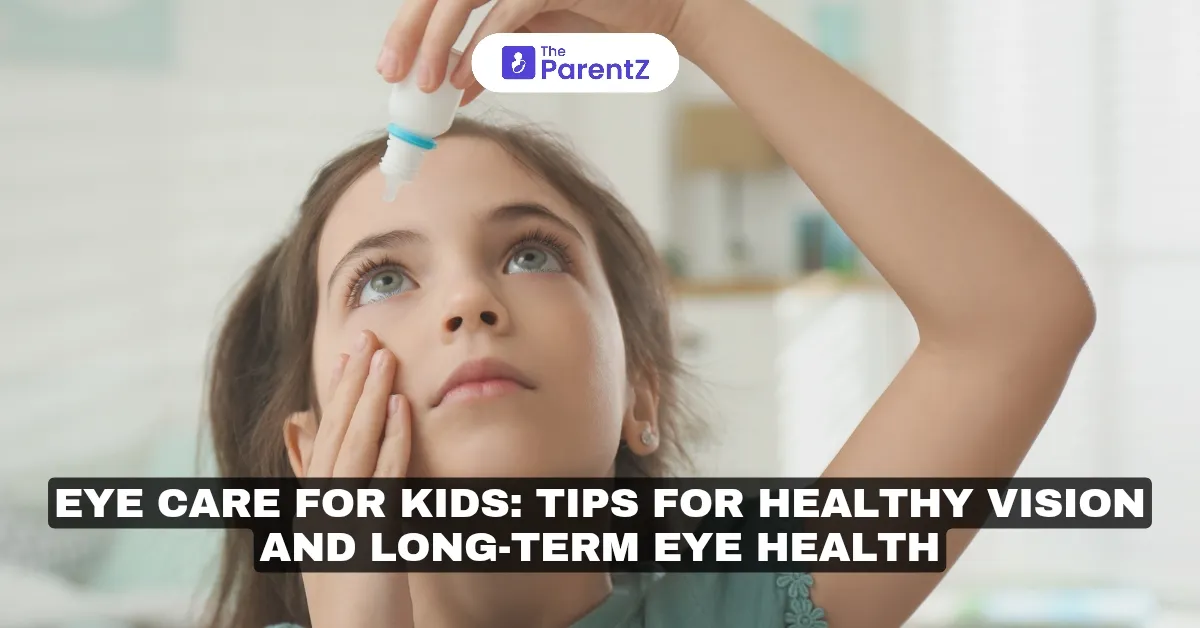Why Eye Care is Important for Kids?
Vision plays a crucial role in a child’s learning, social interactions, and overall development. Poor eyesight can affect academic performance, cause headaches, and lead to long-term eye health issues. Establishing good eye care habits early can help prevent vision problems and set your child up for a lifetime of healthy eyesight.
Common Vision Problems in Children
1. Refractive Errors:
• Myopia (Nearsightedness): Blurry distance vision.
• Hyperopia (Farsightedness): Difficulty focusing on close objects.
• Astigmatism: Blurry vision due to an irregularly shaped cornea.
2. Amblyopia (Lazy Eye):
• One eye is weaker than the other, leading to poor vision development.
• Often requires early intervention with glasses, patches, or therapy.
3. Strabismus (Crossed Eyes):
• Misalignment of the eyes, causing double vision or difficulty focusing.
4. Digital Eye Strain:
• Increased screen time can cause dryness, fatigue, and blurred vision.
5. Allergic Conjunctivitis:
• Itchy, red, and watery eyes due to allergens like pollen or dust.
Signs of Vision Problems in Children
As a parent, watch out for these warning signs:
• Frequent squinting or rubbing of the eyes.
• Holding books or screens too close.
• Complaints of headaches or eye pain.
• Difficulty reading or writing.
• Sensitivity to light or excessive tearing.
• Misalignment of the eyes (one eye turning in or out).
If you notice these signs, schedule an eye exam with a pediatric ophthalmologist or an optometrist.
Essential Eye Care Tips for Kids
1. Schedule Regular Eye Exams
• First check-up at 6 months, then at 3 years, and annually from school age.
• Early detection helps prevent long-term vision problems.
2. Limit Screen Time
• Follow the 20-20-20 rule: Every 20 minutes, take a 20-second break and look at something 20 feet away.
• Reduce screen exposure before bedtime to avoid eye strain.
3. Encourage Outdoor Activities
• Studies show that playing outdoors can reduce the risk of myopia.
• Exposure to natural light supports healthy eye development.
4. Maintain a Balanced Diet
• Vitamin A-rich foods (carrots, sweet potatoes, spinach) help maintain good vision.
• Omega-3 fatty acids (found in fish, nuts, and seeds) support eye health.
5. Teach Proper Hygiene
• Encourage kids to wash their hands before touching their eyes.
• Avoid sharing towels or eye makeup to prevent infections.
• Learn more about Teaching Children to Maintain Personal Hygiene.
6. Protect Their Eyes
• Use UV-protection sunglasses when outdoors.
• Ensure protective eyewear during sports activities.
• Reduce exposure to bright screens and harsh lighting.
When to See an Eye Doctor?
Take your child to an eye specialist if they experience:
• Sudden vision changes or double vision.
• Frequent headaches or difficulty focusing.
• Misaligned eyes or abnormal eye movements.
• Eye pain, excessive redness, or sensitivity to light.
Early intervention can prevent long-term vision impairment and improve academic performance.





Be the first one to comment on this story.